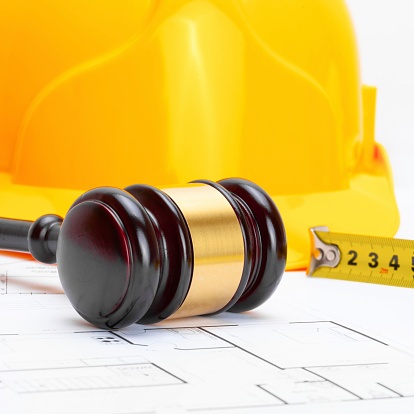 Mechanics liens were filed in connection with two construction projects in Manhattan. The Plaintiffs sought an accounting, declaratory relief, damages for the costs of labor, materials and services furnished, and alleged a diversion of trust funds The Plaintiffs also sought a holding that the Plaintiffs’ mechanics’ liens had priority over the liens of building loan and project loan mortgages held by Bank Leumi USA.
Mechanics liens were filed in connection with two construction projects in Manhattan. The Plaintiffs sought an accounting, declaratory relief, damages for the costs of labor, materials and services furnished, and alleged a diversion of trust funds The Plaintiffs also sought a holding that the Plaintiffs’ mechanics’ liens had priority over the liens of building loan and project loan mortgages held by Bank Leumi USA.
The Plaintiffs asserted that their liens had priority over the building loan mortgages because there were errors in a Notice of Lending filed under Lien Law Section 73 by Bank Leumi. The Supreme Court, New York County, dismissed this cause of action without leave to re-plead. According to the Court, “…nothing in the Lien Law itself, or by any case cited to by plaintiffs stands for the proposition that this defect provides for a subordination of priority for a building loan”.
The Plaintiffs also asserted that its liens had priority over the building loan mortgages because the lender’s waiver of defaults under the building loan agreements were material modifications requiring the filing of amended Section 22 affidavits. The Court dismissed this cause of action without leave to re-plead. According to the Court, “[a] lender’s decision to enforce or not enforce loan covenants which do not impact the amounts available to pay for improvements to real property do not require any public filings under Lien Law Section 22”. Further, the building loan agreements provide that “third parties shall not have any claims against the lender or the borrower” and, therefore,
“[u]nder the agreement, plaintiffs are not third party beneficiaries of loan covenants as between the Lender and the Borrower. As a result, it is the bank’s decision to exercise or refrain from exercising its rights under the agreement, and is not a modification within the meaning of the lien law. Therefore, plaintiffs cannot claim material modification based upon a failure to enforce loan covenants”.
The Defendants moved to dismiss, counterclaiming that the relative priority of the liens had to be determined in a lien foreclosure action. The Court denied the motion. The Court of Appeals in Altshuler Shaham Provident Funds, Ltd. V. GML Tower, LLC, 21 NY3d 352 (2013) “did not hold…that the exclusive means of determining the relative priority of mechanic’s liens over building loans and project loans is through a lien foreclosure action”; Lien Law “Article 2 [“Mechanics’ liens”] lien foreclosure and Article 3-A [“Definition and enforcement of trusts”] class action remedies may be pursued simultaneously”. Notwithstanding, the Court granted the Plaintiffs’ motion to consolidate the Actions.
The Court granted the Plaintiffs’ cross-motion for an interim accounting. MLF3 Airitan LLC v. 2338 Second Avenue Mazal LLC, 2016 NY Slip Op 31847, decided September 30, 2016, is posted at
